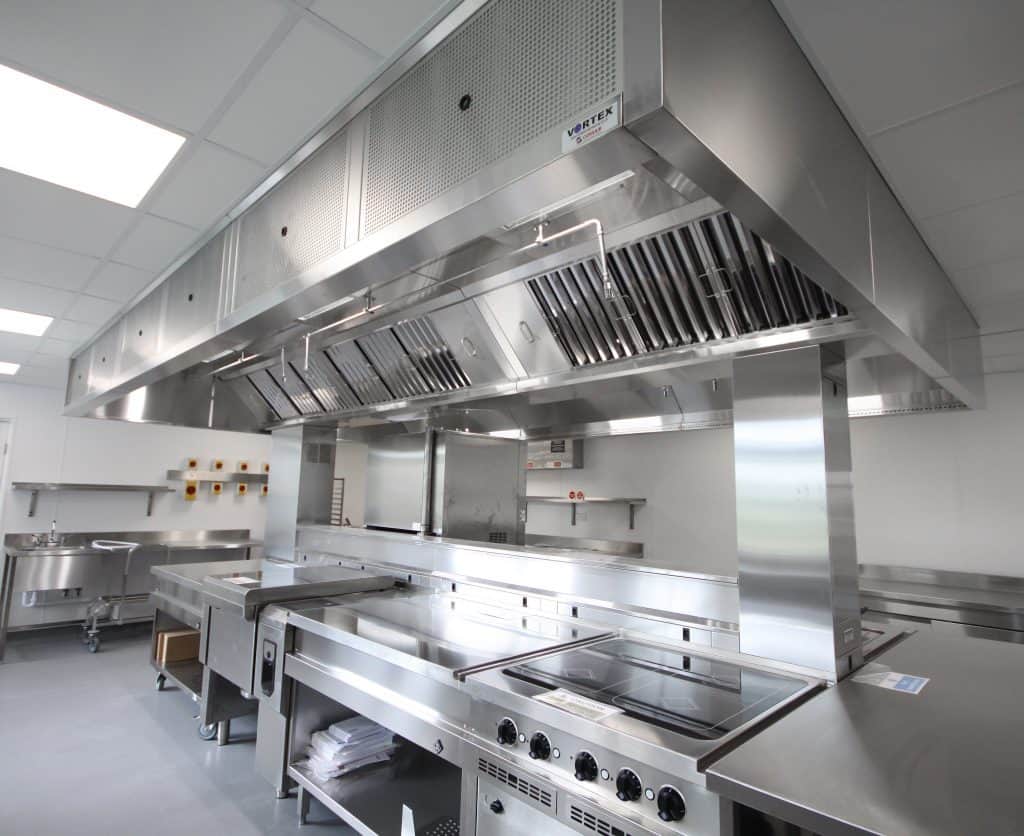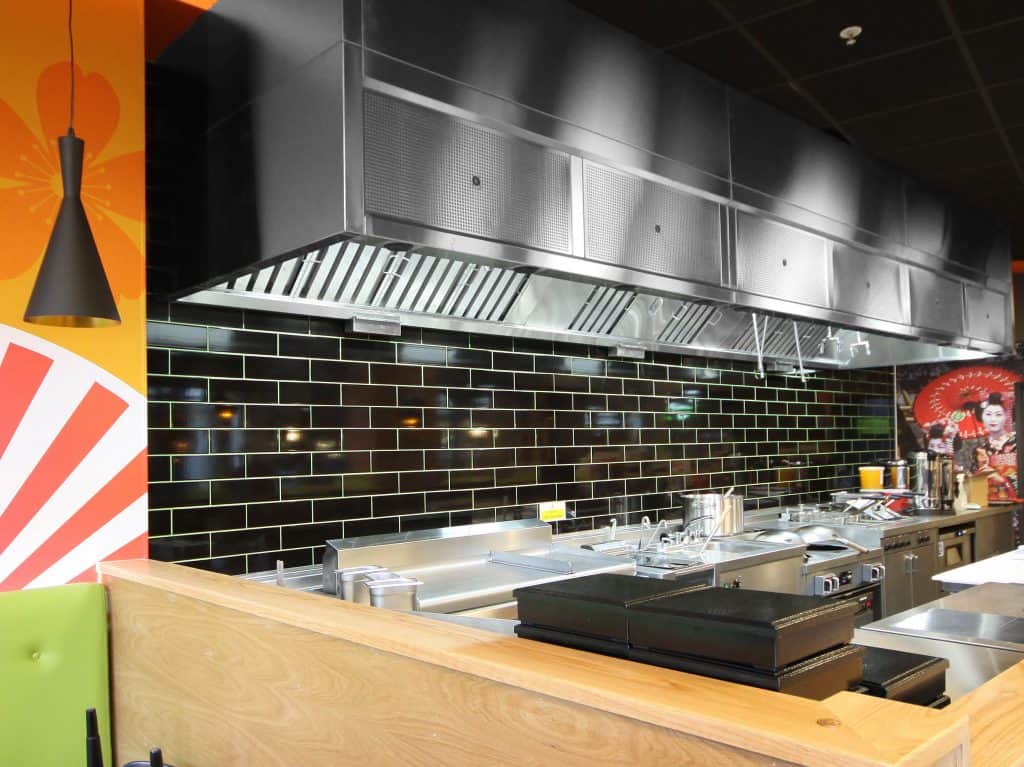UV Light Grease Filtration Systems
The products of cooking must be removed from cooking areas to provide operators with safe and comfortable working conditions. As commercial kitchen ventilation specialists, one of our key offerings is UV light grease filtration systems – a modern approach to tackling grease and odour within ductwork.
If your kitchen handles high volumes of cooking, especially with frying or grilling, a UV system can significantly improve air quality and system longevity.

What is a UV Light Grease Filtration System?
A UV light grease filtration system uses ultraviolet (UV-C) light to break down grease particles and reduce odours from kitchen exhaust air. When cooking fumes pass through the system, UV light reacts with the grease and odour molecules, breaking them down through a process known as photolysis. This reaction turns harmful compounds into carbon dioxide and water vapour, allowing for a cleaner exhaust flow.
These systems are installed within the kitchen canopy, directly treating airborne contaminants before they accumulate in the extraction system.
How Does the UV Process Work?
The system combines multiple stages. First, mechanical filters capture larger grease droplets. Then, as air moves further into the system, UV-C lamps emit light that targets smaller particles. This high energy light breaks down grease and volatile organic compounds (VOCs) through a process similar to oxidation.
Photolysis changes the chemical structure of grease particles, making them easier to manage and less likely to stick to surfaces. This entire reaction happens in a matter of seconds as the air travels through the system.
Top 7 Benefits of a UV Light Filtration System
Commercial kitchens that operate for extended hours, or where duct access for cleaning is limited, will particularly benefit from UV filtration. Here’s 7 reasons why:

- ✔ Removes airborne grease particles.
- ✔ Reduces fire risk in extract ductwork.
- ✔ Protects downstream plant.
- ✔ Makes heat recovery possible.
- ✔ The system can be easily maintained.
- ✔ Destroys odours.
- ✔ Low energy consumption.
Built to DW172 Standards
All our UV light grease filtration systems are built to comply with DW172: the industry specification for kitchen ventilation systems, published by the Building Engineering Services Association (BESA). This standard outlines best practices for canopy design, airflow, filtration, and fire safety.
Engineered for Safe Operation
The UV lamps are sealed within the canopy or duct housing and do not expose staff to direct UV light. Regular servicing ensures the lamps remain effective and that the system runs efficiently.
We design these units with safety interlocks and shields, so the light only operates when it is safe to do so. Additionally, the system’s electrical components are enclosed and protected from heat and moisture.

The Role of UV Systems in Fire Prevention
By breaking down grease before it settles in ducts, UV systems reduce the build-up that commonly leads to fire hazards. In the event of a fire, less internal grease means less fuel, which can help prevent the spread of flames through ductwork.
Fire services and insurers increasingly look for UV systems as part of comprehensive risk management in commercial kitchens. Using a UV system helps support compliance with TR19 regulations, which govern kitchen extract hygiene in the UK.
Speak to Our Ventilation Experts Today
We’ve worked with numerous catering businesses to solve complex ventilation challenges. If you’re planning a new kitchen, upgrading an existing setup, or simply looking for better grease and odour control, we’re here to help.
Get in touch with our team today to discuss your project. We’ll provide clear advice, a detailed quote, and a system that works the way your kitchen needs it to.
For any enquiries, simply contact us on 01295 267021 or email us at sales@corsairengineering.co.uk
